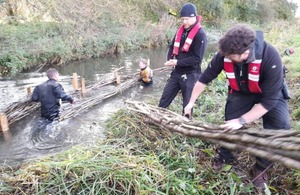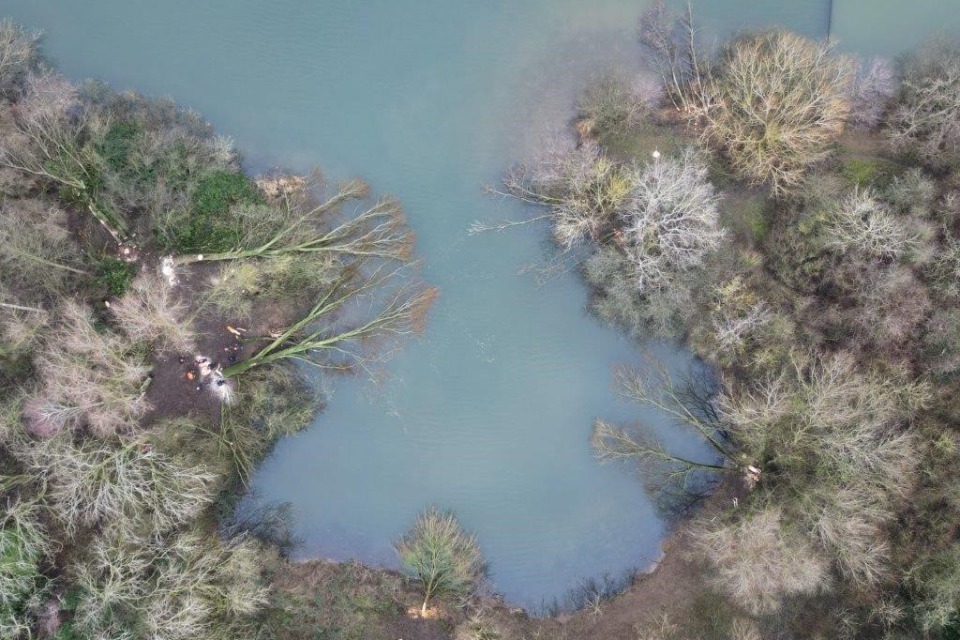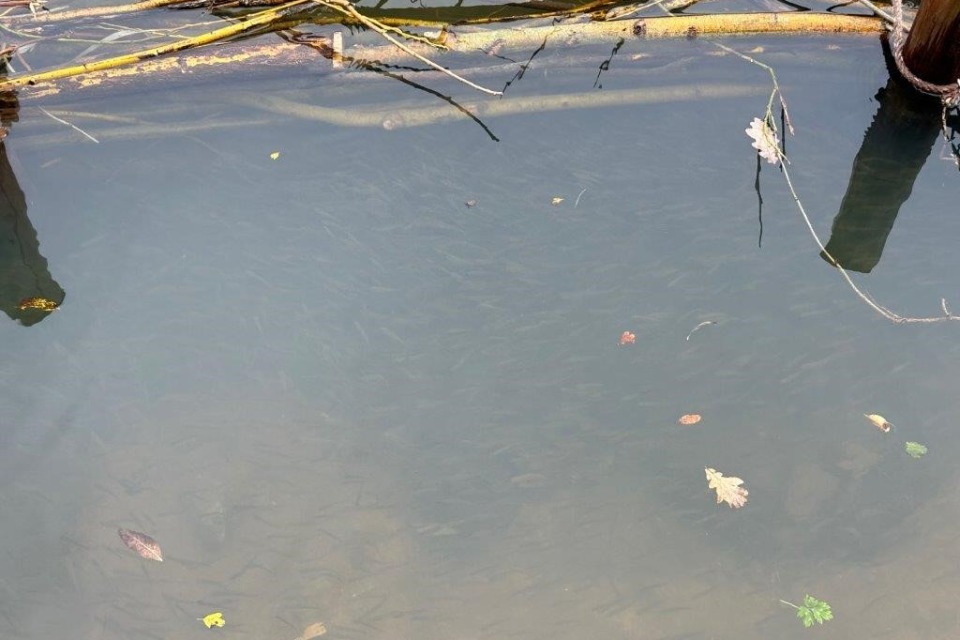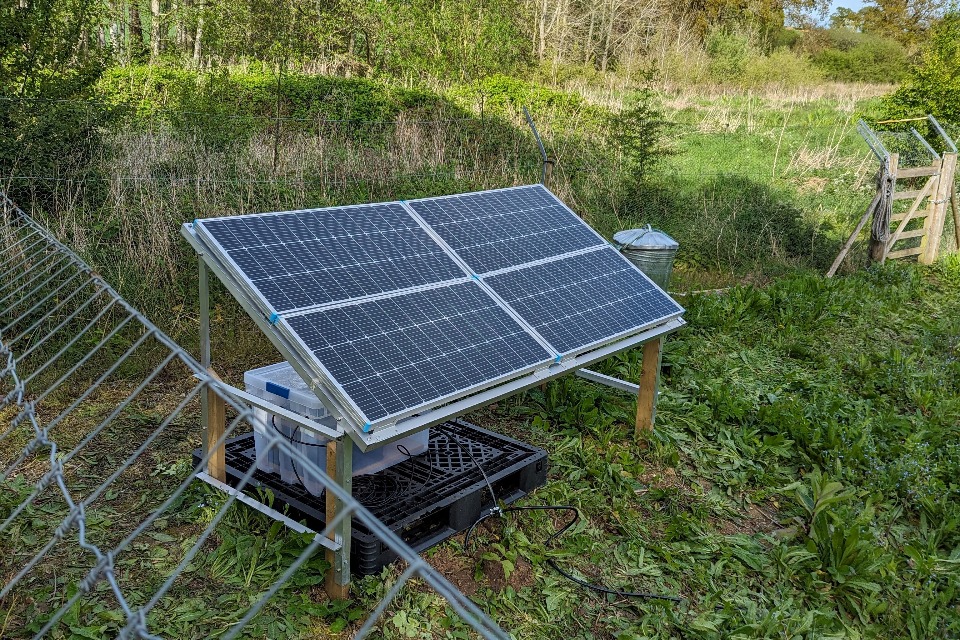East Anglia benefits from Fisheries Improvement Fund
The Environment Agency last year invested over £955,000 in 232 projects to improve fishing in local communities through the Fisheries Improvement Programme.

Environment Agency officers installing marginal woody berms and structures to provide fish refuge.
The 2023-2024 Fisheries Improvement Programme funding round improved 5.5 kilometres of river and 58 hectares of stillwater habitat. It also created 160 new angling facilities and held 104 community events. In total, the projects benefited over 100,000 rod licence holders across England.
Over £22,000 was invested in a fish refuge habitat project in Gunwade Lake at Ferry Meadows in Peterborough, Cambridgeshire. With more than £7,000 of this funding provided by the Environment Agency Fisheries Improvement Programme.

Creation of large woody fish habitat refuge area within Gunwade Lake.
This was a partner led collaborative project between Peterborough & District Nene Angling Club, Nene Park Trust and the Environment Agency. Its main objective was to mitigate the increased pressure on fish populations by creating a variety of enhanced fish refuge habitats within Gunwade Lake.
Surveys revealed that otters were targeting the limited fish-holding areas, significantly depleting fish populations. This predation pressure adversely affected both fish populations and their behaviour, consequently impacting angling performance. The project effectively expanded the range of fish habitats in the lake, creating additional safe hiding places for the fish.
The initial reports from Nene Park Trust and Peterborough & District Angling Club indicate clear evidence of fish using these new habitats. Underwater monitoring will also be conducted later this year to show how these multiple habitat installations can benefit fisheries.

Small roach utilising the new marginal berms.
An additional £3,000 was allocated to a separate solar powered aeration project at Melton Ponds in Norwich. £2,000 of this funding provided by the Environment Agency Fishery Improvement Programme.
Working in partnership with Wroxham & District Angling Club, the Environment Agency installed 2 solar powered aeration systems across 2 ponds. This helped the club in maintaining stable oxygen levels in the ponds, thereby safeguarding fish stocks by reducing the dissolved oxygen level fluctuations.

Solar powered aeration project at Melton Ponds.
This effort has also decreased reliance on the Environment Agency incident response team, as more fisheries can now better manage their dissolved oxygen levels, making them more resilient to prolonged dry weather events.
Environment Agency Fisheries Manager Heidi Stone said:
The Fisheries Improvement Programme is vital to improving fisheries habitats, protecting the sustainable future of fish stocks and supporting angling clubs across England.
It’s just one great example of how the Environment Agency is reinvesting rod licence income back into fisheries to support anglers and improve our fishing environment.
The Fisheries Management Programme reinvests money generated by rod licences to improve the habitats of a range of fish species. It supports angling clubs and fisheries to improve access to nature and secure a sustainable future for English fisheries in our changing climate. This year, £955,543 of rod licence income was reinvested into the scheme, with a further £1 million secured through match funding from partners.
Since launching in 2015, the Fisheries Improvement Programme has invested over £20 million in more than 1,300 projects across England.
Those looking to fish in English waterways should remember they must have a valid rod fishing licence, which can be easily bought online.
NOTES TO EDITOR:
For more information on specific projects funded by the Fisheries Improvement Programme, please contact newsdesk@defra.gov.uk.